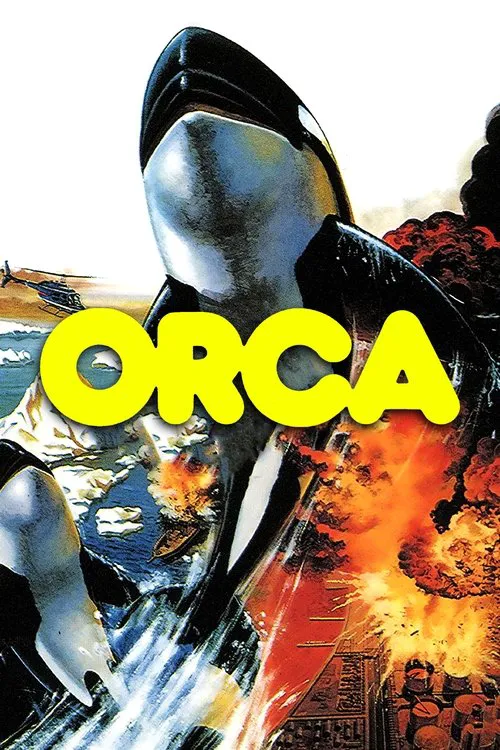Orca

Plot
In the 1977 film, Orca, directed by Michael Anderson, the audience is introduced to a killer whale, later referred to as "Orca" or also called 'The Fisherman,' who becomes a malevolent force after a horrific act of violence. On the rocky shores of Newfoundland, a fisherman, Nathan, played by Richard Harris, leads his vessel into the open sea. Nathan's actions inadvertently result in the tragic demise of the whale's family. A massive male orca, driven by grief and rage, sets its sights on vengeance against the perpetrators of its family's brutal death. As the film progresses, Orca, the vengeful whale, wreaks havoc on the coastal village where Nathan resides. The townsfolk live in fear, as the orca continues its relentless and methodical rampage, targeting the very vessels that caused the death of its family. The malevolent spirit of Orca is a force to be reckoned with, as it destroys a ship in a particularly striking display of rage and revenge, sending shockwaves throughout the harbor. In the midst of chaos, a young woman, Rachel, played by Charlotte Rampling, is introduced. She is a marine biologist who has a deep affinity for marine life. Nathan finds himself at the center of the community's attention, as he is the one directly responsible for the death of the orca's family. The villagers, demanding justice for their losses and fearful of the continued wrath of Orca, begin to turn against Nathan. Enter Grey Owl, played by Will Sampson, a Native Canadian tribesman who has an affinity for animals. Grey Owl is a spiritual and philosophical figure, with a deep connection to the natural world and the animals within it. As Grey Owl observes Orca, he attempts to reason with the whale, sensing its profound pain and hurt, but to no avail. Orca remains unrelenting in its pursuit of vengeance. A series of brutal and graphic battles between Orca and the fishing vessels ensue, showcasing the whale's ferocity and tenacity. In a pivotal scene, Orca attacks a ship, causing chaos and destruction, with the crew desperately trying to fend off the attack. The orca's ferocity and strength, on full display in this scene, highlight its unrelenting nature. The escalating conflicts with Orca lead to a confrontation between Nathan and Rachel, as she attempts to stop the vengeful whale. Grey Owl, observing this dynamic, continues his attempt to reason with Orca, hoping to find a peaceful resolution to the standoff. Rachel's connection to marine life provides a compelling contrast to the villagers' fear and aggression, highlighting the complexities of human-nature relationships. As tensions rise and the battle between human and orca intensifies, Grey Owl's philosophical musings and Rachel's determination to find peace provide an interesting counterpoint to the chaos and destruction. In one scene, a group gathers to try to kill the whale to save their village, however, they end up losing all of their boats and being left on the side of the road, leaving them stranded without any form of transportation. The film ultimately builds towards a haunting conclusion that explores the devastating consequences of the destruction caused by Orca. As the battle between human and orca reaches its climax, a series of profound transformations occur, as all the main characters and the audience come to a profound realization about the world and its inherent complexities. Ultimately, Orca delivers a haunting, unflinching look at the intricate balance between human existence and the animal kingdom. Through this film, the audience is confronted with a stark reminder that actions have consequences, and that those actions will have repercussions beyond what one can possibly imagine.
Reviews
Recommendations




